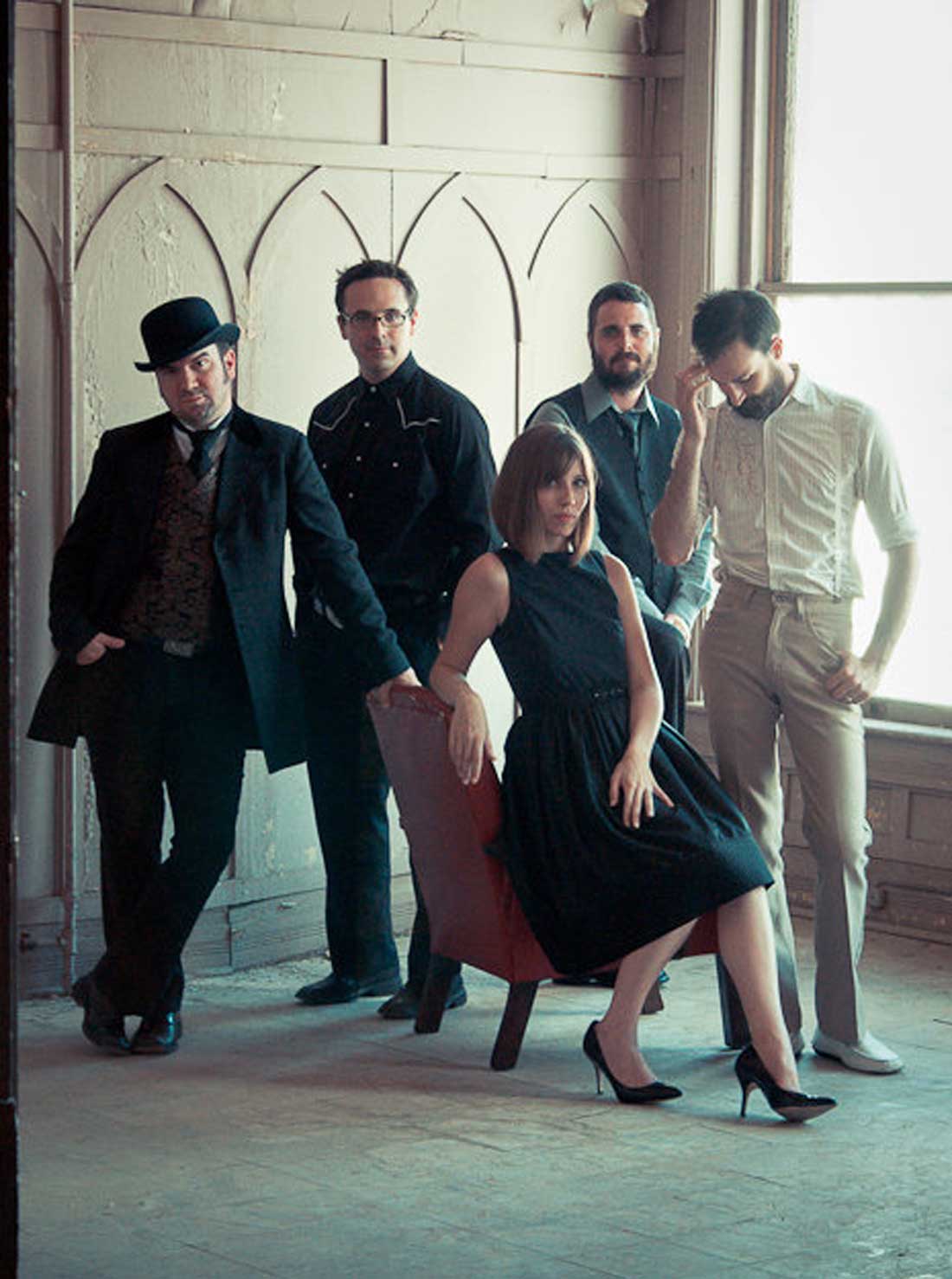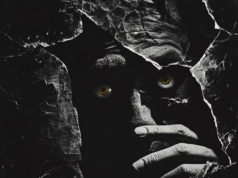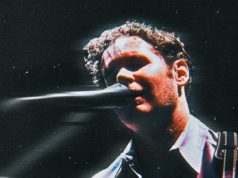Fort Worth has become a pretty lively independent music town in recent years, but the downside is that studio projects –– in other words, bands that don’t perform 10 times a week –– are often sadly neglected. They’re doing good stuff, but nobody seems to buy their music or see their admittedly rare shows.
Though not nearly as shy and retiring as The Hendersons, JJ & The Rogues, and some other local studio projects, the seven-year-old Beauxregard maintains a low profile while managing to pump out sumptuous, idiosyncratic pop music with some regularity.
There was a time when, like many talented, ambitious young bucks, Beauxregard had dreams of world domination. Led by co-songwriters J. Quincy Romine (vocals) and Ryan Rhodes (guitar), the band had a distinct, steampunk look: suits, bowler hats, cravats, all spurred by Romine’s fascination with spaghetti westerns and early Fort Worth history. The group also had a unique sound. Described by Romine as “future Western,” it was a seamless, savory blend of Morricone-esque flavor (drunken, brassy synths, lazily bouncing baritone riffs, lyrics about death and desperation) with indie-rock urgency (catchy melodies, toe-tapping rhythms). Beauxregard performed at a decent clip but never seemed to catch on, even after releasing a marvelous debut album, 2011’s Gryphoemia.
Even though they fell off the local-music radar, Romine and Rhodes never stopped working. The origins of Ghosts of the Gaslamp, Beauxregard’s new sophomore album, date back to 2011. “We wanted to follow up quickly, but finances and some revisions of the overall direction of the new album kinda pushed things way back,” Romine said.
Along with Ghosts of the Gaslamp, Beauxregard has just released Tableau Mecanique, a collection of “songs that have been in the hopper for a long time,” Romine said. They don’t sound like typical Beauxregard tunes –– they’re louder, more aggressive, and just as often more sonically colorful –– but they’re all superbly performed and recorded. Some of them –– like the barreling “The Sky Is Falling,” the mournful and droning “Hollywood Forever,” and The Beatlesesque “Queen Noir” –– are downright killer.
Tableau Mecanique draws mostly from existing recordings; Ghosts of the Gaslamp is fresh. Recorded in Rhodes’ Dallas home and Romine’s South Fort Worth abode (“terrible neighborhood, outstanding place to record,” Romine said), the new album consists mostly of performances by only Romine and Rhodes –– Beauxregard’s lineup has been in flux, Romine said, for about the past year.
The streamlined arrangement doesn’t seem to have hurt the end product at all. Beauxregard’s vision is as sharp as ever: dynamic, carefully orchestrated, nimble pop music that despite its humble acoustic core (and Wild Wild West flourishes) is still edgy and serious. Driven by Romine’s dramatic Broadway-style vocals, Ghost of the Gaslamp is grim but often really pretty. “The Spirit Has Flown” is a jittery little number that opens up in the chorus, with Romine extending notes over swelling accordion and twinkling guitar. “Pale Horse” could be a Doors B-side, with its yawning carnival organ and imagistic lyrics; “Deserae,” with its snappy beat, staccato guitar riff, and huge chorus, is actually more than a tad Burning Hotels-y. Ghosts of the Gaslamp is real music by real musicians who’ve been at this music thing for a while now. They deserve your attention.
The plan now is to keep writing and recording music. And, yes, playing the occasional show. “We’ll keep playing shows,” Romine said, “but we’ve pretty much run up the white flag on the idea of ever going anywhere significant.”
A couple of things keep Romine and Rhodes going. “We love writing this stuff,” Romine said, “and I love playing and writing music with my best friend.”
Romine insists he’s not being a Debbie Downer. “I wouldn’t trade anything we’ve done to this point for all the fame in the world,” he said. “I am so happy and thankful to have had this opportunity, and I hope we can keep doing it.”
Not defining himself through his music, he said, has been liberating. “I used to think that [my music defined me], but I have re-adjusted my way of thinking on it, and I’ve made peace with it. I haven’t been this happy in years.”
[box_info]
Beauxregard
Fri, Sep 20, at Dallas Museum of Art, 1717 N Harwood St, Dallas. Free. 214-922-1200.
[/box_info]














why can’t I post this link on my facebook page?